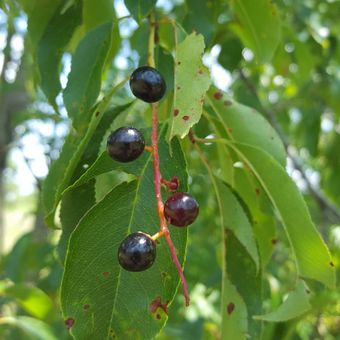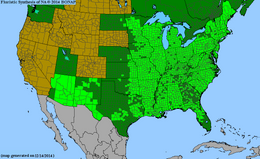Black cherry is a medium-sized, fast-growing deciduous forest tree or shrub. It is easily grown in average, medium, well-drained soils in full sun to part shade. A profuse spring bloomer, it has fragrant white flowers in slender pendulous clusters that appear with the foliage in April into May. Flowers are followed by drooping clusters of small red cherries that ripen in late Summer to dark purple-black. Fruits are bitter and inedible fresh off the tree, but can be used to make jams and jellies. Foliage turns attractive shades of yellow and rose in Fall. This is one of the largest of the cherries, typically growing to 50–80’ tall with a narrow-columnar to rounded crown.
Black cherry typically occurs in both lowland and upland woods and along streams throughout the United States. As a pioneer species, it is both widespread and common. Seeds are widely dispersed by birds who eat the fruit and then excrete them. Excellent wildlife tree, especially as a butterfly and moth host plant. It is a host plant for the Eastern tent caterpillar. It is also a host to the fungus that produces the cherry knot gall, and the galls in turn are the primary food for a species of caterpillar. Deer browse the foliage.
BONAP Native Range Map (bright green indicates county native, dark green indicates state native)
Photo by Kathy Thornton


